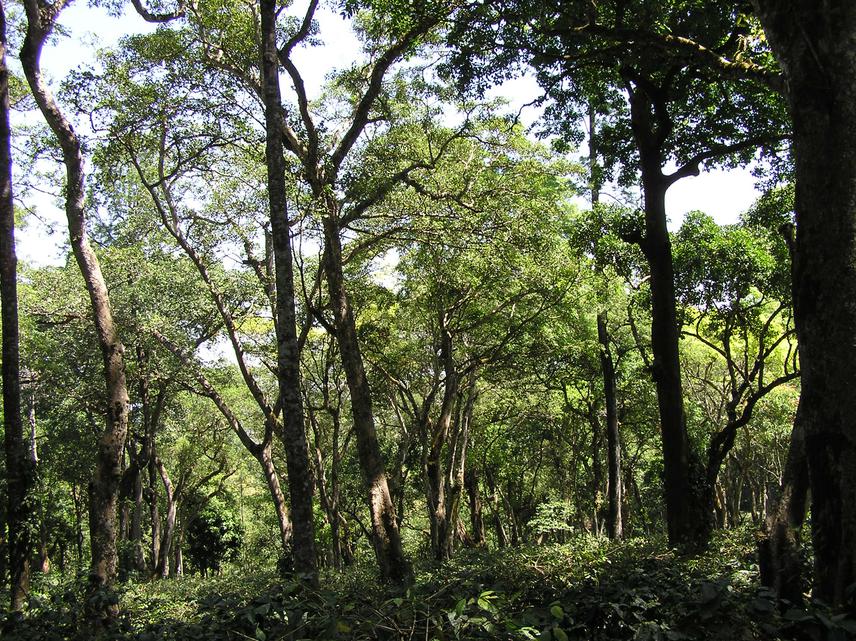Article featuring the project.
Shade coffee agroforests as native plant sources for restoration
12 Sep 2023 Malenadu, India, Indian Sub-continent Forests | Biodiversity | Farming | Plants
Conservation Implications of Fragmentation and Logging Impacts on Carbon Storage Ecosystem Services in the Western Ghats, Southern India
Understanding the Drivers of Losses in Carbon Storage Ecosystem Services Provided by Tropical Forest Fragments in India’s Western Ghats
Assessing Recovery of Large Rainforest Trees and Carbon Storage in Ecologically Restored Degraded Rainforest Fragments
Our project engages with the question: how can we expand nurseries for tropical rainforest restoration while reducing the dependence and resultant pressure on existing forests for seeds? Our project is based in India’s Western Ghats mountains, a global biodiversity hotspot and a major centre of coffee production.

A coffee farm with a tall, dense shade canopy comprising multiple native tree species in the Western Ghats, India. © Anand Osuri.
In the Western Ghats, coffee is cultivated in the humid zone on lands that previously harboured tropical rainforests. Coffee is predominantly grown under a dense canopy of shade trees, with many farms planting or retaining a number of native shade tree species. However, any regeneration of native trees from fallen and dispersed seeds is typically eliminated during weeding operations in coffee production areas. We aim to develop a conservation and restoration model that rescues and rehabilitates native tree seeds and seedlings from coffee farms and raises them in nurseries for future restoration planting in nearby degraded rainforests.
Our project is located in the Malenadu region of the central Western Ghats. The c. 750 km2 landscape mainly comprises privately owned shade coffee farms, interspersed with fragments of degraded and secondary rainforests on private and state-protected lands. The landscape abuts state-protected tropical rainforests along its western margin and moist-deciduous forests to its east.
To assess the scope and pilot our species rescue and restoration model, we focus on three main components. The first component comprises research on floristic composition and seed dispersal in coffee farms. This will guide the selection of species and search strategies for focusing rescue efforts on coffee. The second component will develop partnerships with farmers to initiate periodic seed and seedling rescue from coffee farms and develop rainforest tree nurseries. The third component involves research into vegetation structure and composition of degraded forests in the landscape that represent sites where rescued trees will ultimately be planted as part of ecological restoration efforts. The research will help understand ecological barriers to natural recovery and develop appropriate restoration methods for these forests.
Header: A restoration nursery run by the project team will host rainforest tree seeds and seedlings rescued from coffee farms. © Anand Osuri.
Article featuring the project.
Shade coffee agroforests as native plant sources for restoration
YouTube video featuring the project.
Eco India: How coffee is solving Western Ghats' biodiversity crisis